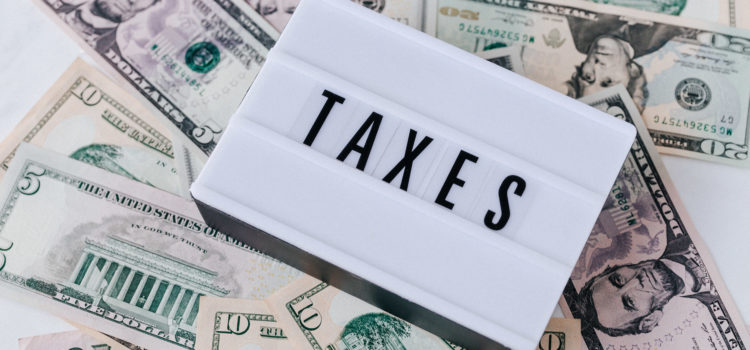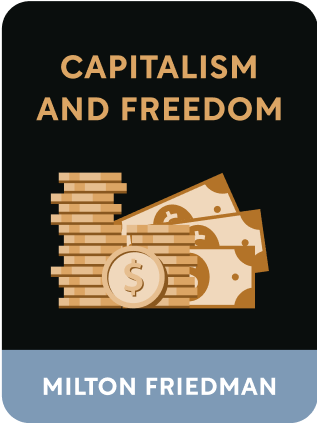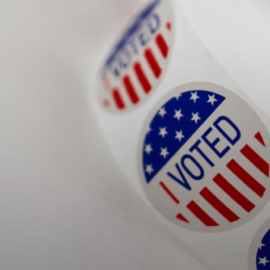

This article is an excerpt from the Shortform book guide to "Capitalism and Freedom" by Milton Friedman. Shortform has the world's best summaries and analyses of books you should be reading.
Like this article? Sign up for a free trial here .
What does Milton Friedman say on taxes? How does Friedman suggest taxes should work?
According to Milton Friedman, taxes should be at a flat rate. He argues against a progressive income tax and indicated that a flat tax would reduce deductions and close loopholes.
Read more about Milton Friedman, taxes, and changing the system.
Milton Friedman on Taxes
Contrary to the views of anti-capitalists, advanced capitalist countries have less inequality than underdeveloped countries or those with legal caste systems.
Moreover, ownership of property represents a far smaller share of national income in capitalist countries than it does in underdeveloped or non-capitalist societies. In advanced capitalist societies, wages earned through labor represent a far greater share of national income. That’s no coincidence. Labor is far more productive in such societies, and thus, provides workers with greater opportunities and earning power.
The record of capitalism has shown it to be highly successful at raising the standard of living for the vast majority of people living under it. Through efficient mass production, modern capitalism gives the majority of people access to those goods and services that were historically only available to the very wealthy.
Capitalism, unlike a socialist or caste system, also creates the possibility of upward mobility. Your position in the wealth hierarchy can change, and is not established by law or custom. According to Milton Friedmand, taxes should be flat and used productively.
Against Progressive Income Tax
To combat the alleged dangers of income inequality, most industrialized countries have established systems of progressive taxation. Under such a system, the marginal rate of taxation increases the more one earns. Thus, your income from $0-$49,000 might be taxed at 12 percent, your income from $50,000-$99,999 might be taxed at 25 percent, and so on. But according to Milton Friedman, taxes like this don’t work.
Yet they seldom succeed in reducing inequality or even raising more revenue than would be earned through a non-progressive tax system. One problem with progressive taxation is that it increases pre-tax income inequality. If high earners know that their top marginal tax rate is going to be high, lucrative jobs become less attractive than they would otherwise be. The only way to compensate for this is to make these kinds of jobs even more well-paid—thereby increasing inequality.
Progressive income tax codes are also nearly always more complex than alternatives. They contain all sorts of loopholes and deductions that tax certain kinds of income (like capital gains) at different rates than other kinds of income (like standard wages and tips).
This adds an element of arbitrariness into the tax code and is often the product of special-interest lobbying. It also creates a strong incentive for wealthy people to devote inordinate resources to devising complex tax-avoidance schemes to help them lower their overall tax liability. This tax avoidance spending is extraordinarily wasteful. Milton Friedman says taxes should avoid excessive spending.
This is why progressive tax systems often fail even on purely redistributive grounds—the loopholes and carve-outs give those who can afford to pay tax professionals (who are likely to be wealthy themselves) an opportunity to avoid paying their share owed by law.
The Flat Tax
According to Milton Friedman, taxes are better at a flat rate. A flat tax is more efficient and equitable than a progressive tax system. Under a flat tax, everyone would pay the same rate, regardless of income level or income type. A flat tax plan would also broaden the definition of “income,” taxing more types of income than the present system does, while closing loopholes and special-interest exemptions.
Because the tax base would be broader, a flat tax would also enable the overall tax rate to be much lower. By closing loopholes and strictly limiting deductions, a flat tax would likely yield more revenue than a progressive system, while smoothing out inequalities in the tax code. Because the rates would be uniform and all types of income would be equally subject to taxation, there would be far less incentive for individuals and businesses to waste resources on tax avoidance schemes.

———End of Preview———
Like what you just read? Read the rest of the world's best book summary and analysis of Milton Friedman's "Capitalism and Freedom" at Shortform .
Here's what you'll find in our full Capitalism and Freedom summary :
- The key principles from Milton Friedman's Nobel Prize-winning book
- Why capitalism functions best when it is freed from government restraints
- How forced redistribution schemes are morally unjust






